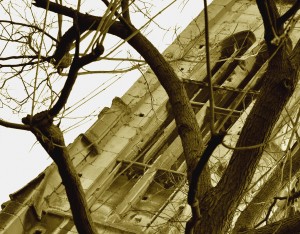B. Physiological noise refers to biological- Physiological deficiencies of communicational agents that affects emitting and/or signification of carrier physical signal of significations. The voice issues of emitter or hearing issues of receiver generates physiological noise. Also, are inducing such a noise hearing loss, poor eyesight, hearing or visual impairments, blindness, hard of hearing, memory loss, pronouncing deficiency etc. A student that has problems with sight and is not wearing glasses, he will not see well what is written on the table, so, he will be under the influence of a physiological noise. Similarly would be the situation if he not wore appropriate lens.
Arhive zilnice: 5 aprilie 2013
Răspunde
Din cărțile profesorilor. The Noise, de Ștefan Vlăduțescu (trad. Mirela Teodorescu)
The Noise, de Ștefan Vlăduțescu (trad. Mirela Teodorescu)
The noise is an important ontological element of communication. The noise concept appoints physical and/or psychological factors that influences negative the communication event progress: “Any factor that can obstruct the accurate transmitting, understanding or interpreting of the message” Pavalache-Ilie M., 2012 ). For “noise” acceptance is used also “interference” notion; for example, D. J. Rothwell sees „semantic noise” as a generation of „interference” (Rothwell D. J., 2009, p. 12). Also, K. S. Verderber, R. F. Verderber and D. D. Sellnow are speaking about „interference (distractions)”, as communication element (Verderber R. F., Verderber K. S., Sellnow D. D., 2010, p. 3).

